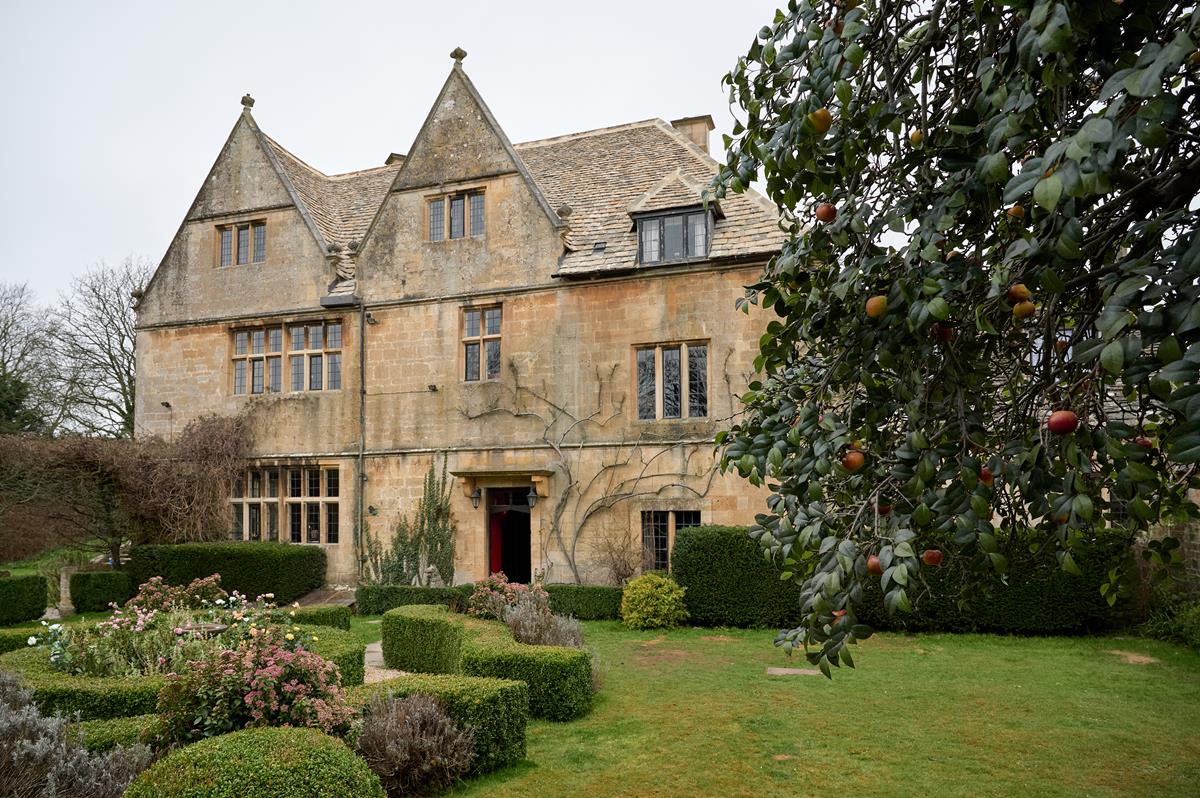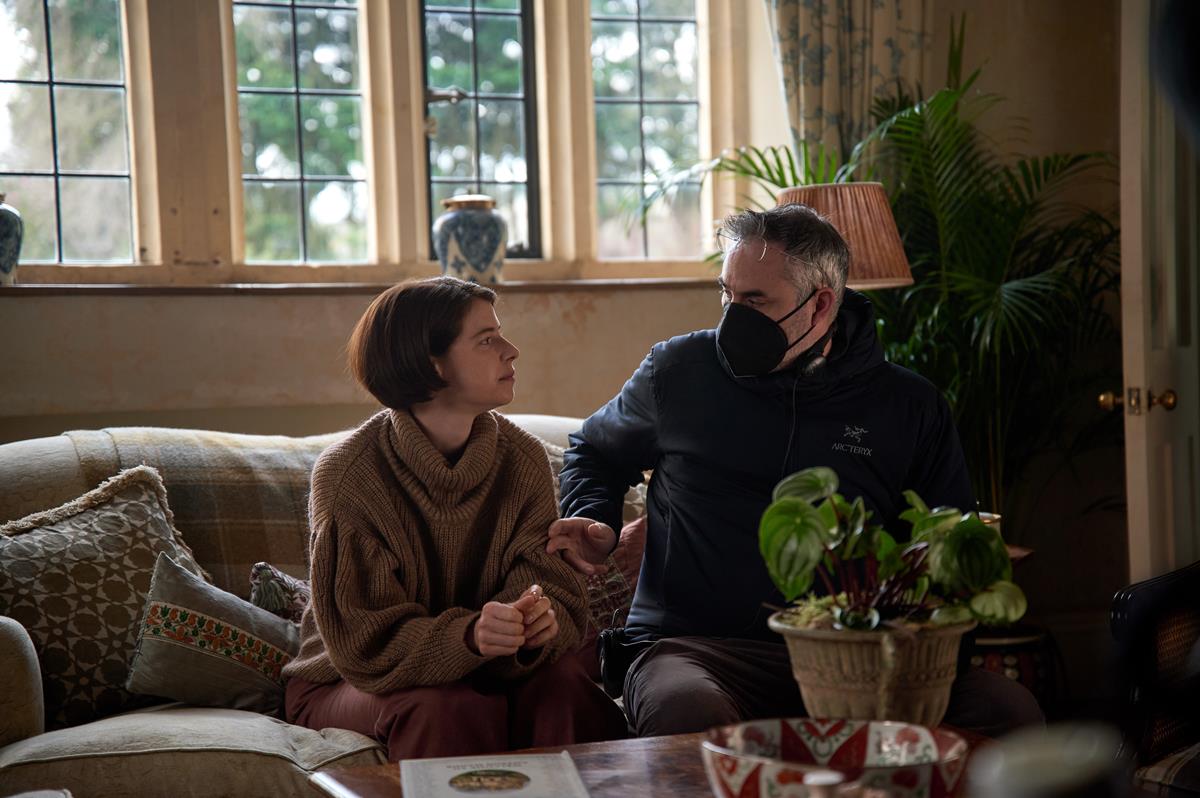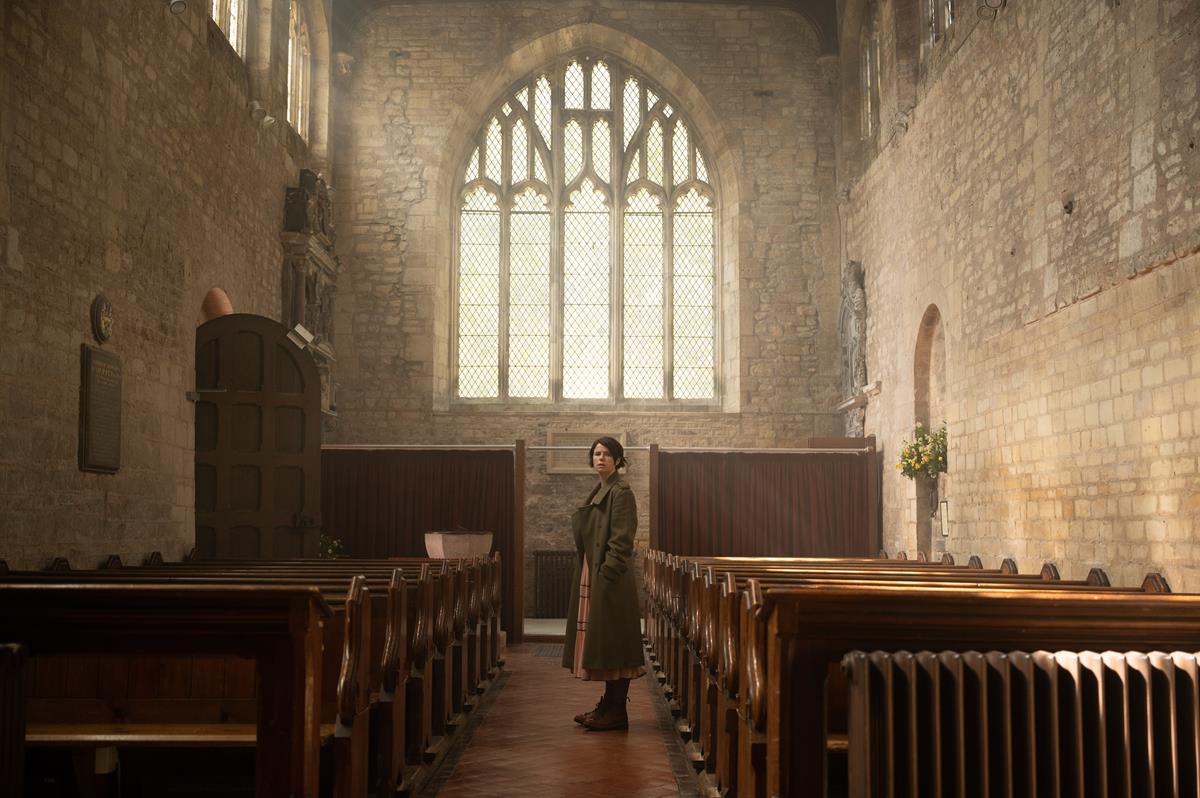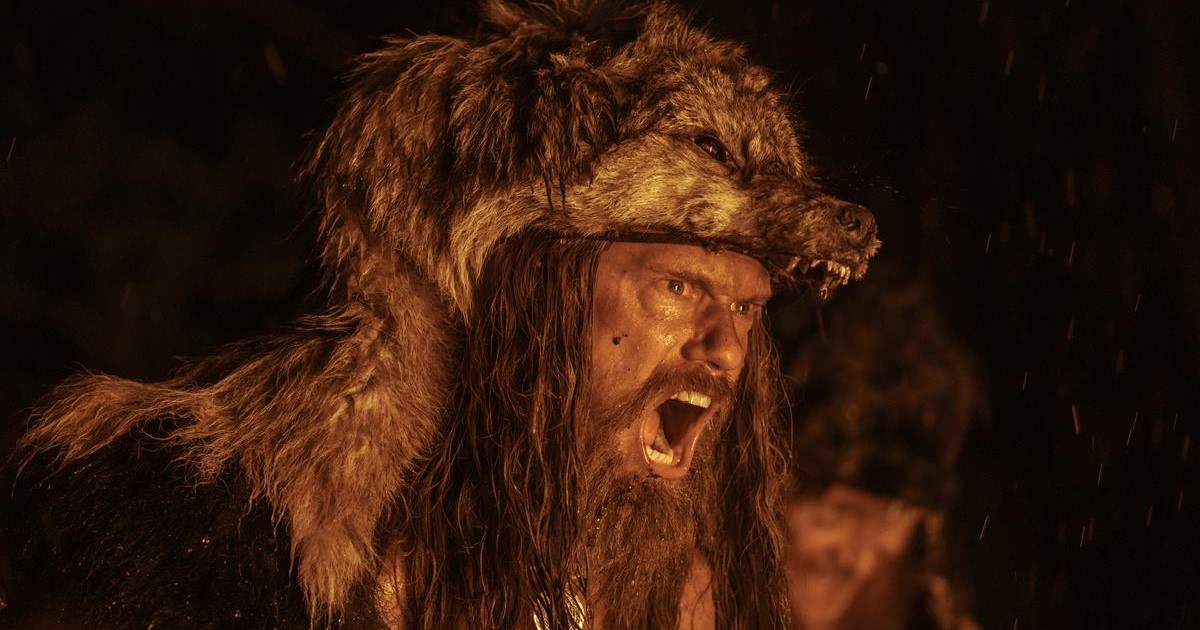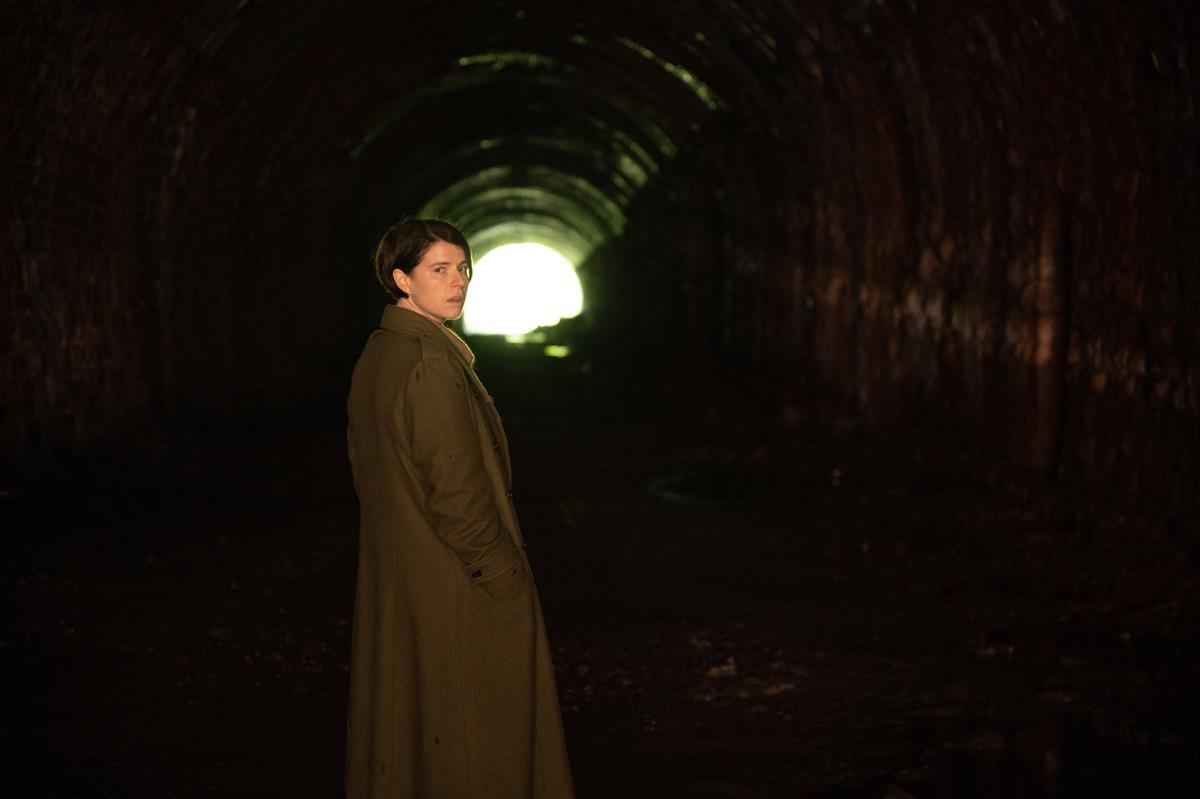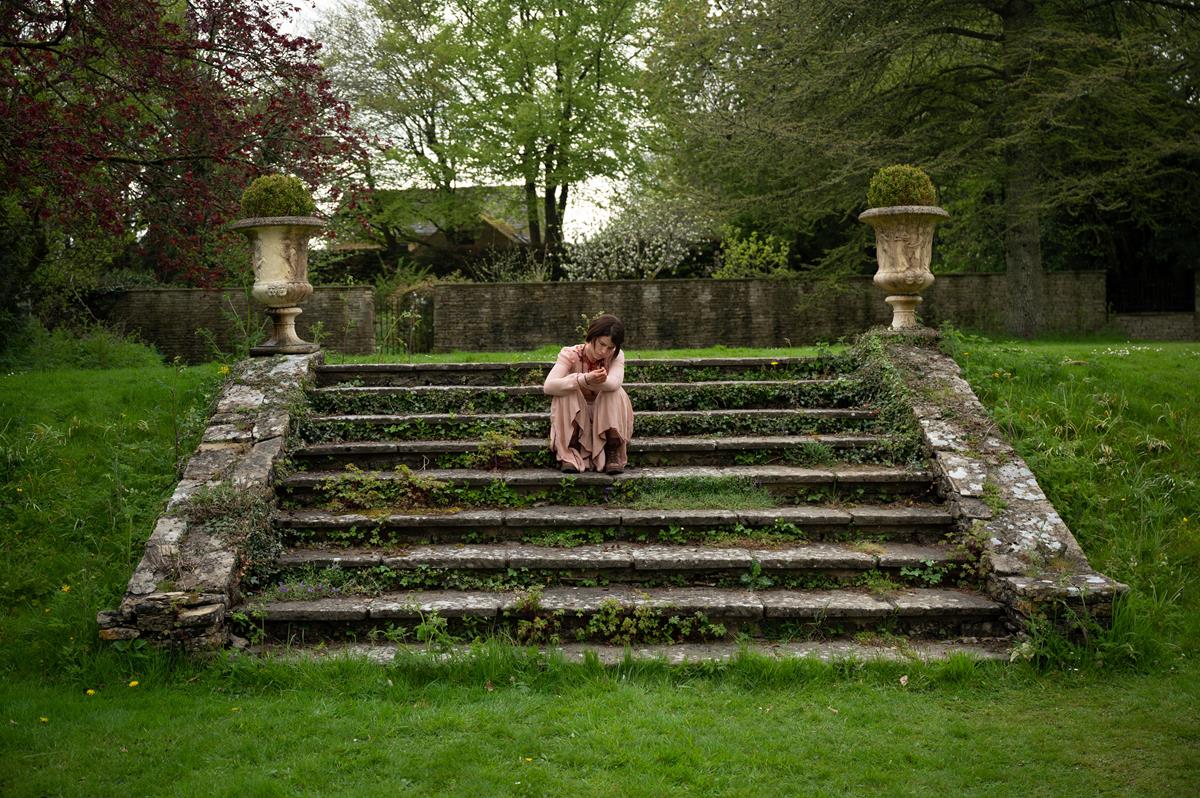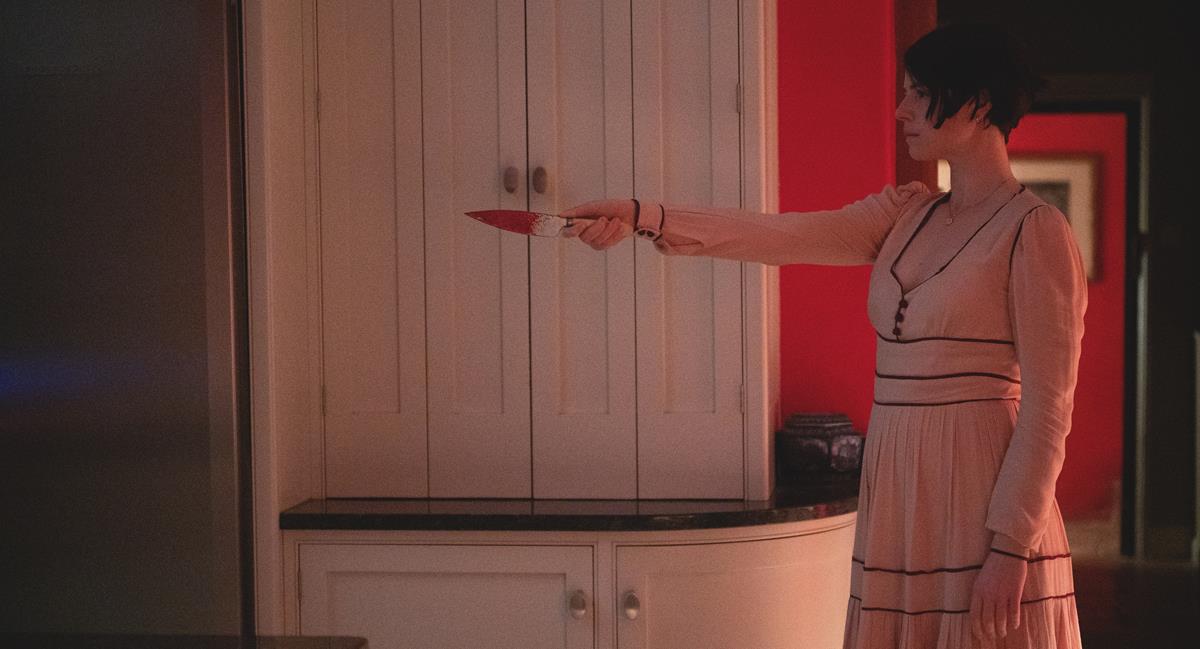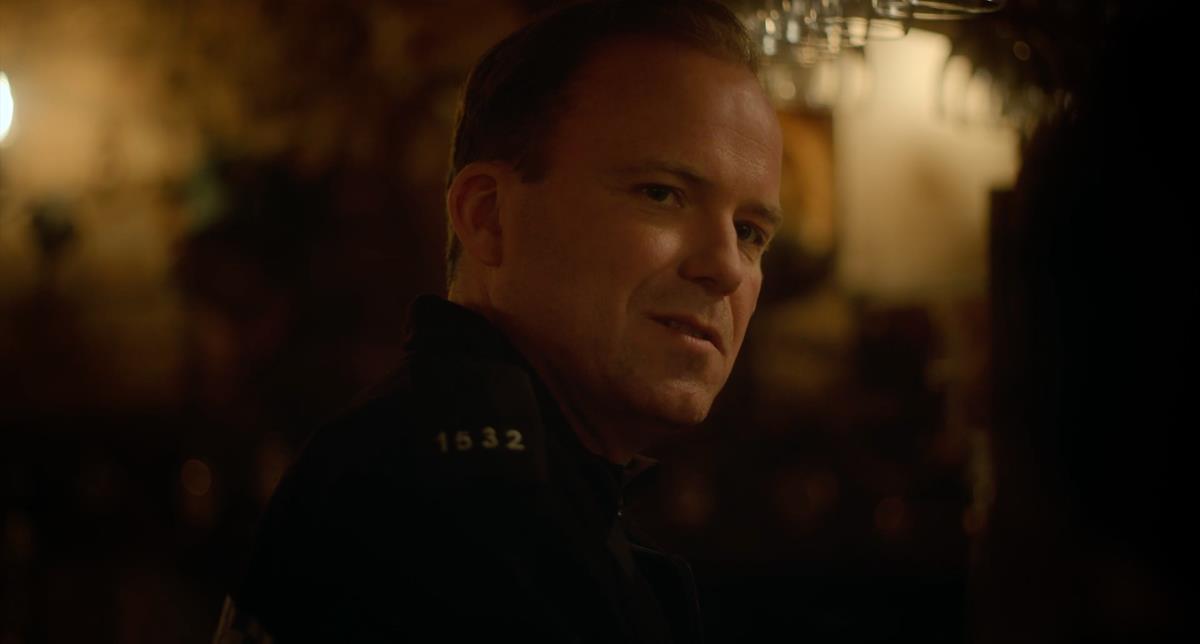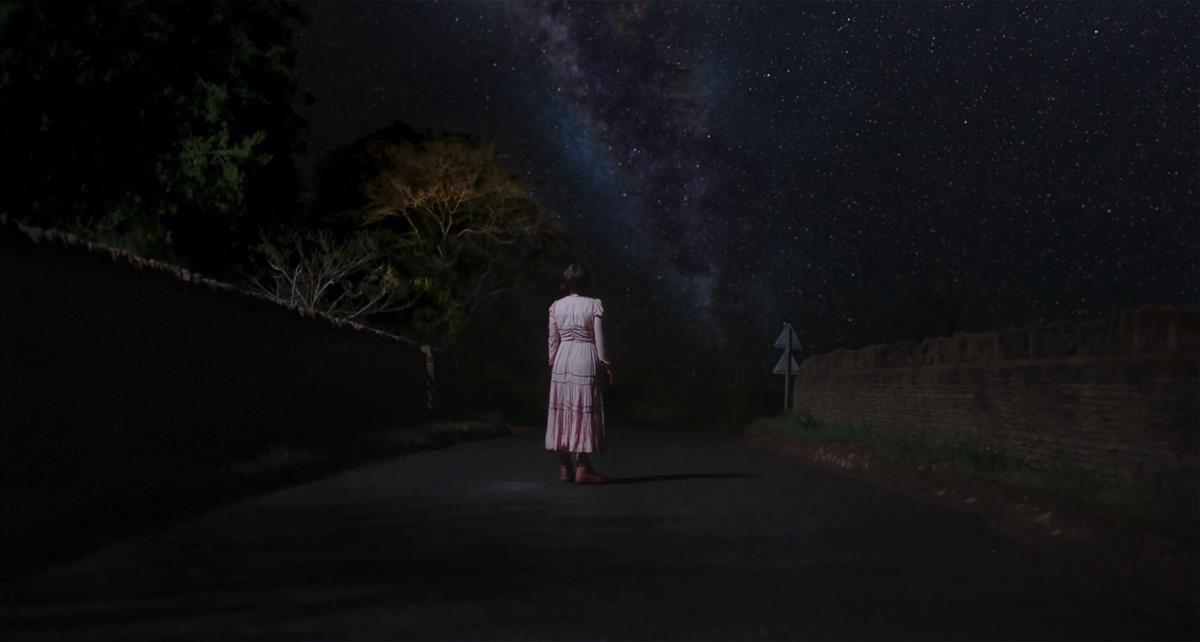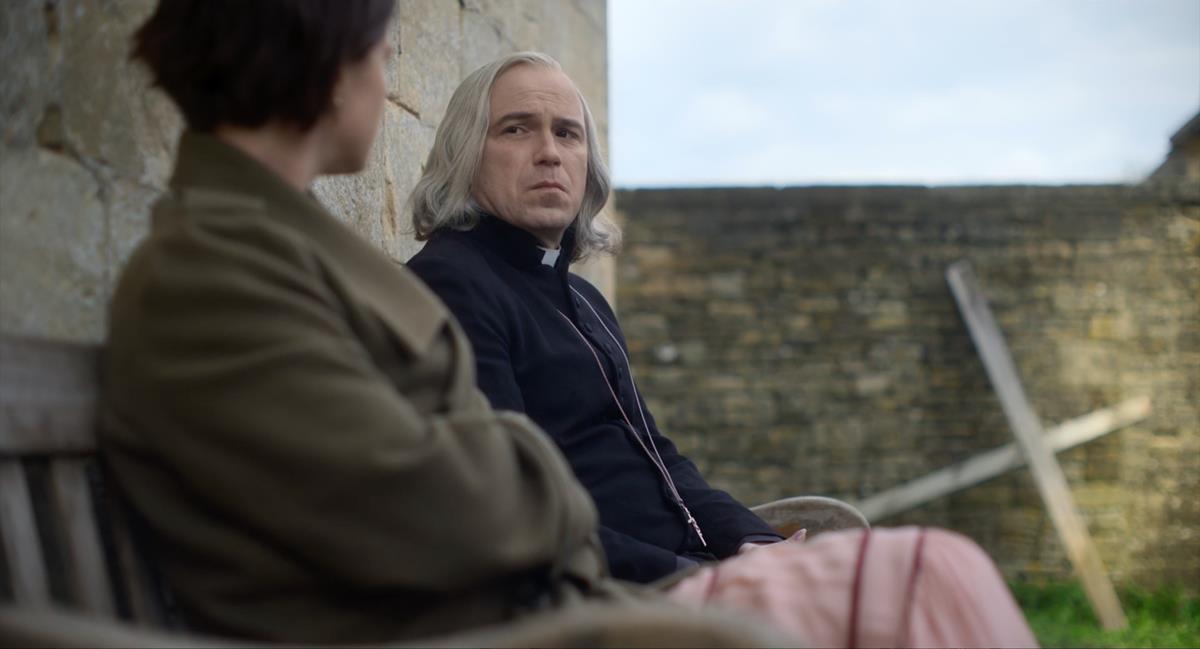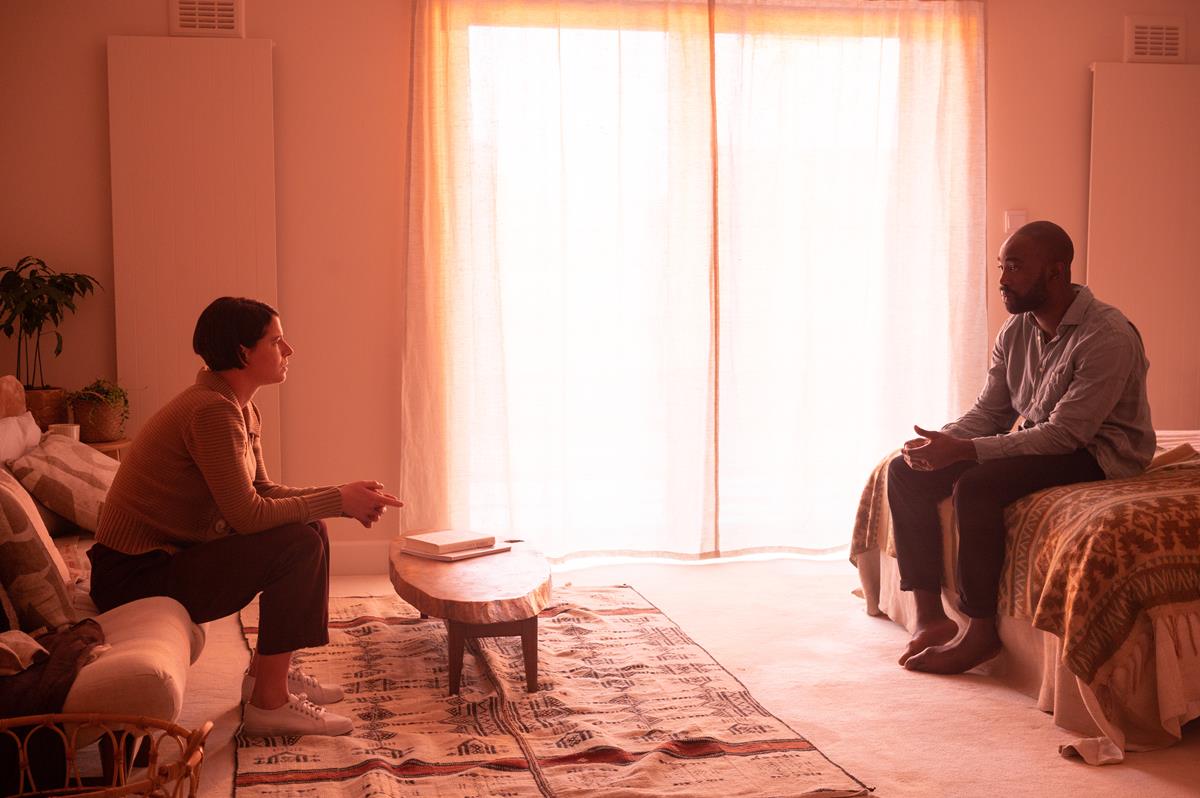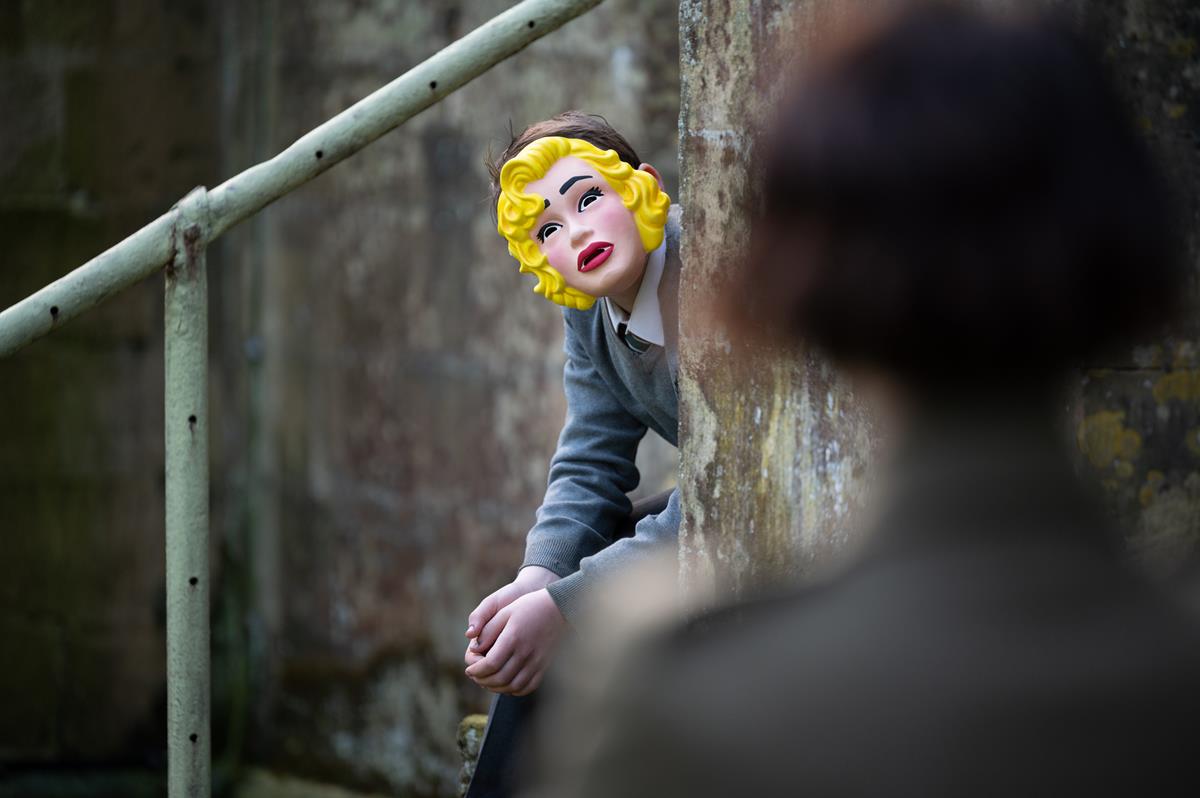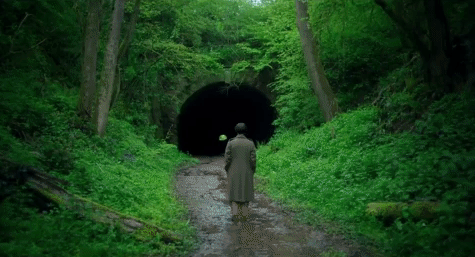
Starring Jessie Buckley, writer-director Alex Garland’s third film, “Men,” is an unconventional horror story about masculinity and its manifestations. Cr: A24
A woman alone in a large, secluded house; a walk through the woods and a stranger stalking through the underbrush — this might appear to be a classic horror set-up. But Men is no conventional horror film. At its core it is a story about a central crisis of our times — masculinity and its manifestations; about aggressions great and small; about ancient, unchecked ideas.
It’s also a film interested in the foundational myths that animate our culture and what audiences themselves bring with them to the theater.
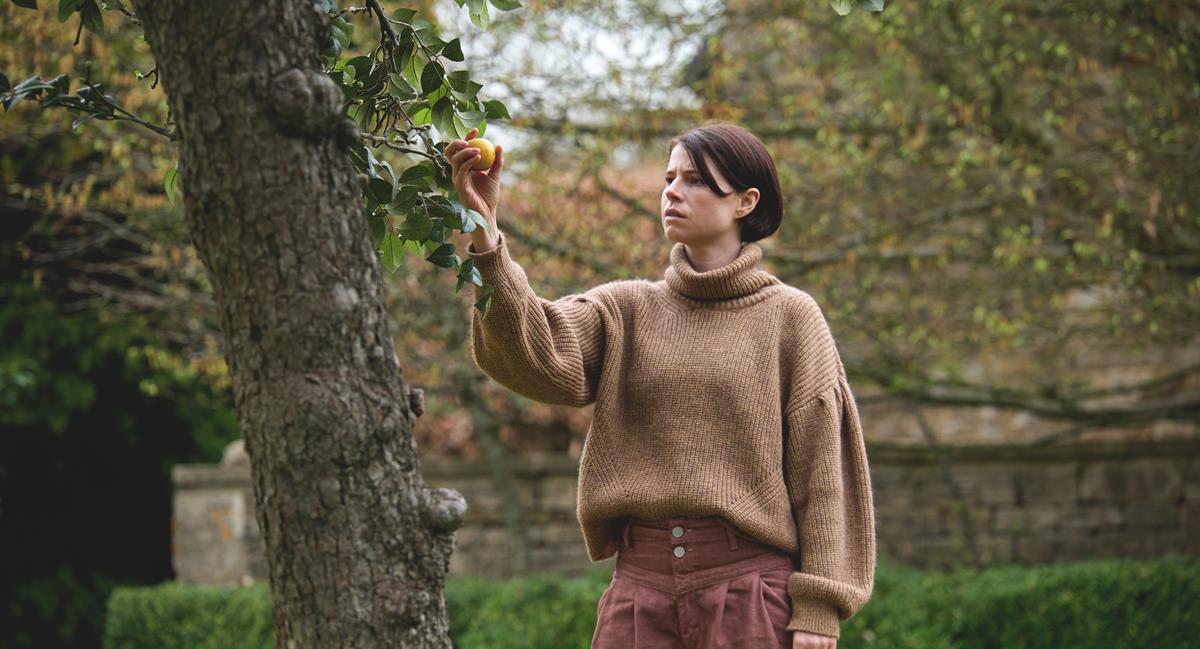
“It’s about things I’ve been thinking about for a long time and some that have been touched upon in my earlier films,” says writer-director Alex Garland in the film’s production notes. “But what I wanted to do with it is to make a film that people can project onto as much as possible, where the viewer is a participant in the narrative.”
Men’s official cast list is only four names long. Star Jessie Buckley appears in nearly every frame as Harper, a young woman who has rented a secluded vacation home in the English countryside as a reprieve from recent relationship turmoil. There she encounters Rory Kinnear in a polymorphic performance recalling the multiple roles that Alec Guinness played in the classic British satire Kind Hearts and Coronets.
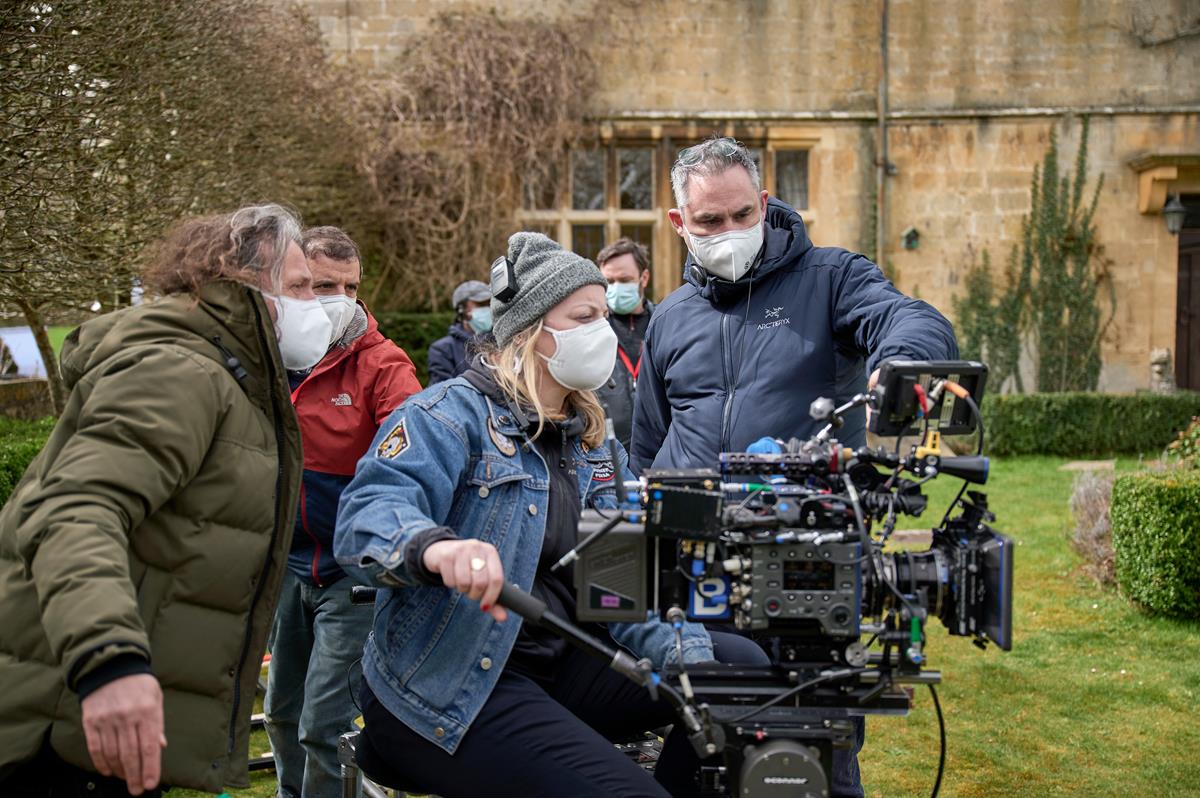
Kinnear tells Ben Travis at Empire he ultimately plays nine or 10 different characters, each of whom are quite distinct from one another.
“Some are actively threatening, some of them seem fairly benign, but all of them personify different aspects of the male tendency to belittle or spite or slight,” he says.
“Each one had to be as fully rounded as the next, even though some of them have a very limited amount of screen-time. The threat they represent, or their lack of self-awareness, had to come from a specific place within them.”
READ MORE: 28 Days Later Actually Is A Zombie Movie, According To Alex Garland (Empire)
The film is Garland’s third as writer-director. Already he has established a singular filmmaking voice, at ease exploring philosophy, science, ethics, and the questions embedded in our times via the framework (and subversion) of genre.
His projects tend to challenge, confront, and fuel conversations. His first two movies, Ex Machina and Annihilation, were sci-fi mindbenders. In Men, all the elemental ingredients of folk horror — isolation, nature, strangers, religion, fertility, violation, the uncanny — seem to be in play.
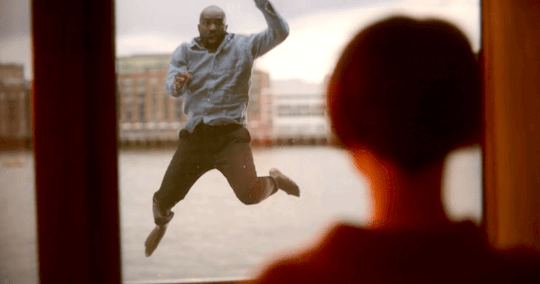
From writer-director Alex Garland’s “Men,” starring Jessie Buckley. Cr: A24
LIGHTS, CAMERA, ACTION! SPOTLIGHT ON FILM PRODUCTION:
From the latest advances in virtual production to shooting the perfect oner, filmmakers are continuing to push creative boundaries. Packed with insights from top talents, go behind the scenes of feature film production with these hand-curated articles from the NAB Amplify archives:
- Savage Beauty: Jane Campion Understands “The Power of the Dog”
- Dashboard Confessional: Ryusuke Hamaguchi’s “Drive My Car”
- “Parallel Mothers:” How Pedro Almodóvar Heralds the New Spanish Family
- “The Souvenir Part II:” Portrait of the Artist As a Young Woman
- Life Is a Mess But That’s the Point: Making “The Worst Person in the World”
“In my mind, Men is connected to Annihilation,” Garland tells Entertainment Weekly’s Christian Holub. “They’re very much about how you’re feeling about something. Men is a gut-level film. I’m proud of Ex Machina, I really love it, but it’s an intellectual film. Men is not, I think.”
READ MORE: Alex Garland explains why his new horror film Men is more ‘gut-level’ than Ex Machina (Entertainment Weekly)
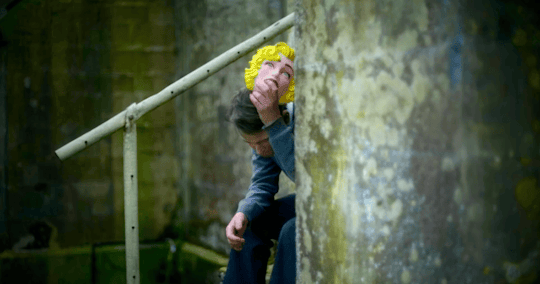
From writer-director Alex Garland’s “Men,” starring Jessie Buckley and Rory Kinnear. Cr: A24
If the first half of the film portrays the well-worn scenario of intense grief, “set somewhere lusciously photogenic, like Nicolas Roeg’s Don’t Look Now or Peter Medak’s The Changeling,” as Jordan Hoffman at AV Club puts it, the whole second half of the movie “is a carnival of imagery mixing folk horror, Biblical allegory, and an anatomy textbook gone horribly, horribly wrong.”
The ending — which we won’t reveal here — has got tongues wagging, but it isn’t designed only for shock value. As Garland has said, “The film works in a way as a strange sort of mirror — and people will have their own ideas about what it’s about, or not about, that mean something to them.”
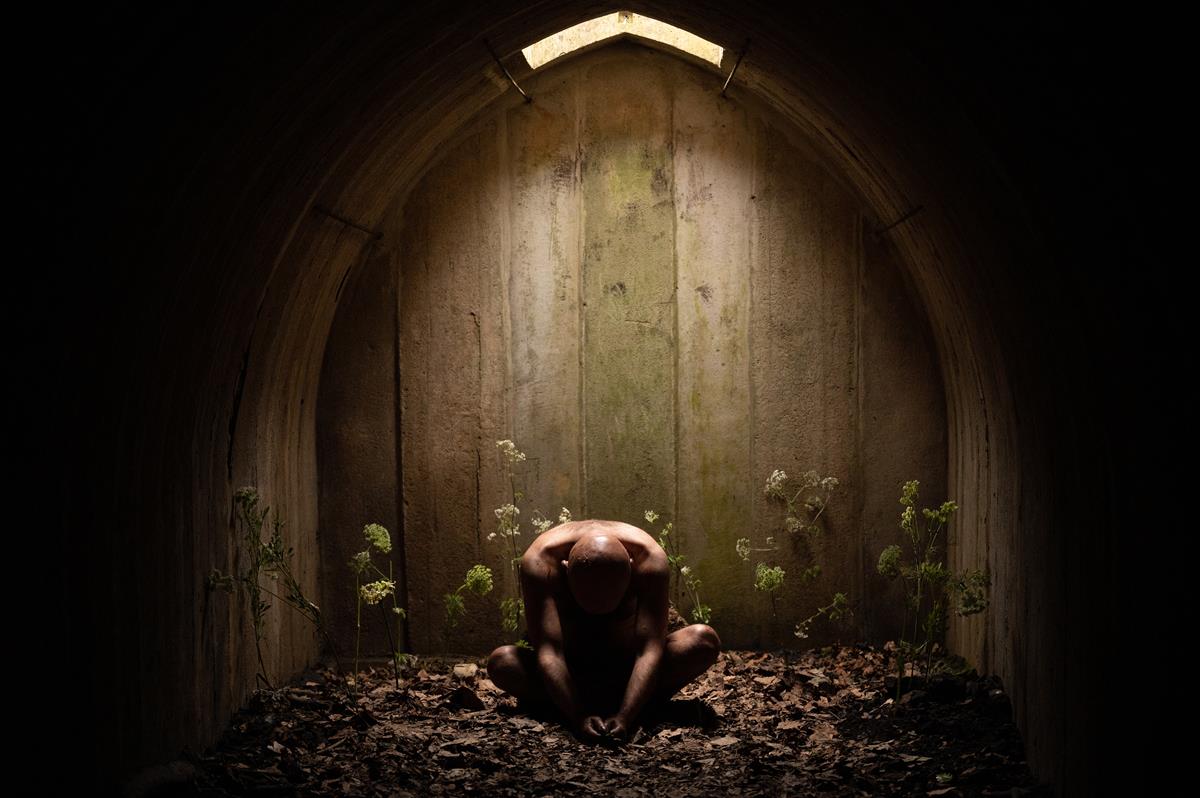
On that front he worked extensively with Buckley and Kinnear in rehearsal to shape the script.
Buckley says, “The question this script offered me was the question of manhood and how it relates to what we’re experiencing in the culture at this moment. It’s a very heightened exploration of that. As we shot the film, new things were constantly revealed but when it comes to these questions, I think we’re all still searching.”
Kinnear, also in the production notes from distributor A24 (home of horror films like The Witch, Hereditary and Midsommar), talks about the dialogue that the filmmakers hope to open up as audiences respond to Men.
“This film leans very hard into the idea that a story is a 50-50 split between the storytellers and the story receivers. More than any film I’ve worked on, this one was anticipating an audience would join the conversation.”
Reviewers aren’t entirely sure it works but they commend the experiment.
“Don’t expect a hard sci-fi vision, just expect a vision: an intense surrealist twist on [horror’s] Final Girl trope,” IndieWire’s Ryan Lattanzio wrote. “It will lead to more questions than answers but theories will abound.”
READ MORE: ‘Men’ First Reactions: Alex Garland’s ‘Visceral as Hell’ A24 Horror Film Will ‘Make People Angry’ (IndieWire)
The Playlist’s Brianna Zigler liked the idea of a horror film “that’s a little bit about the lack of creativity in horror films. The film picks at these [conventional horror genre] tropes and fashions a text out of that very mundanity, whether or not that text consistently works.”
READ MORE: ‘Men’ Review: Alex Garland Crafts A Sneaky, Speculative Work Of Cosmic Horror (The Playlist)
AV Club’s Hoffman goes all in: “Whereas other movies merely dabble in surrealism — an incongruent montage here, a held frame in slow-motion as eerie music swells there — Men crosses the event horizon and allows itself to succumb,” he writes.
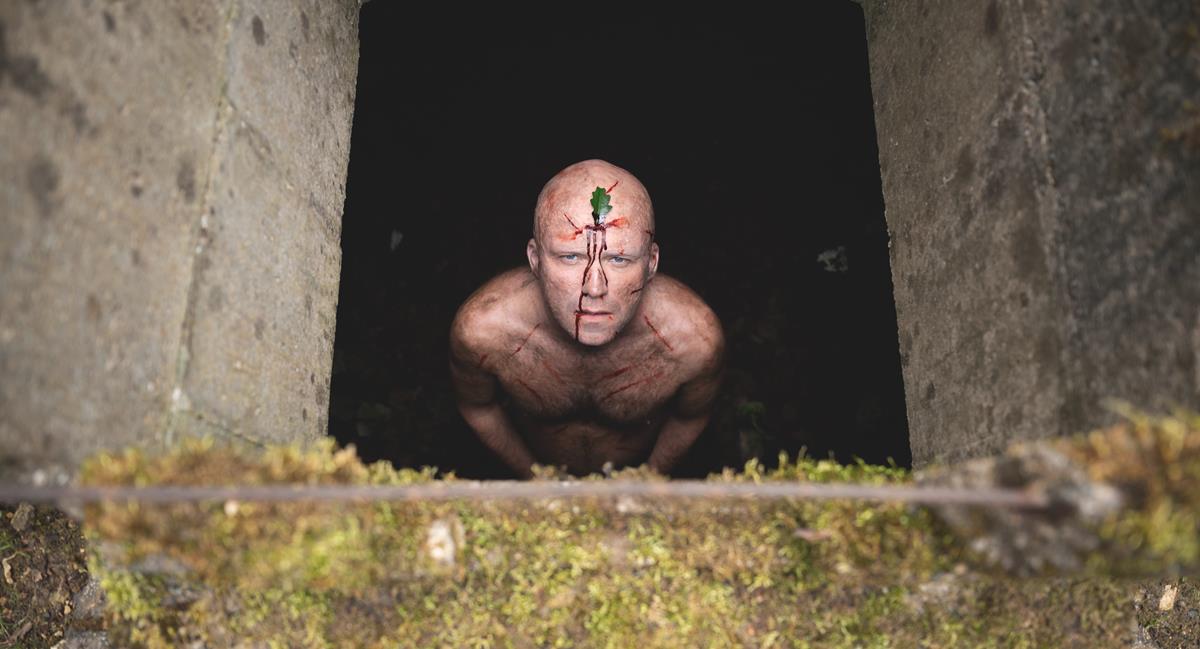
READ MORE: Men is a thrilling, deranged horror masterpiece (AV Club)
The cinematography is by Rob Hardy, who, with production designer Mark Digby, makes powerful use of color to denote different story points. Flashbacks to city life paint the screen in an inflamed orange, while present-day rural scenes are suffused in verdant green. The inside of her rented house, meanwhile, is ominously red.
“It’s like giving the viewer a nudge, somehow,” Garland tells EW. “When I say it’s a slightly aggressive film, that’s what I mean: It’s coming at the viewer. It’s a gentle movie sometimes, there’s lots of silly humor in there, but it’s also a bit delinquent.”
Every element of Men — photography, production design, costumes, makeup, sound, performance, and visual effects — layers together to create the extreme images of the film’s climactic scene.
We’ll leave that hanging.
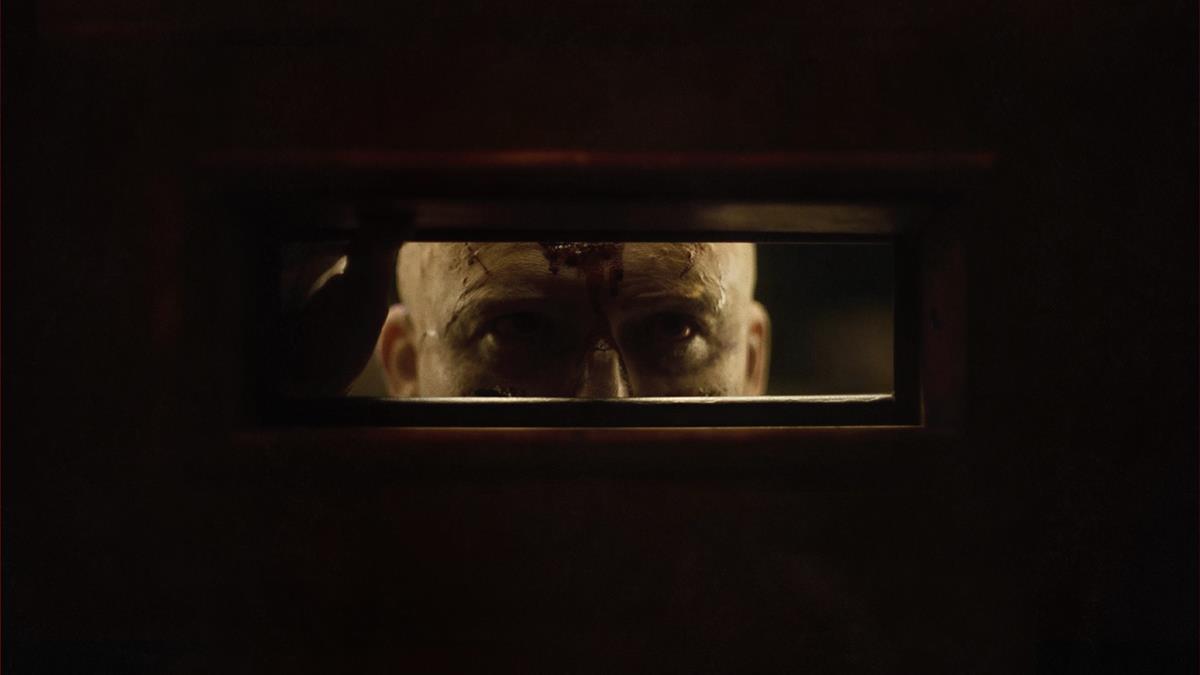
Want more? In an interview with Collider, writer and director Alex Garland talks about how Men doesn’t explain every detail, expecting the audience to keep up and fill in the blanks without being spoon-fed. He also notes how Attack on Titan influenced his film, and how he collaborated with director of photography Rob Hardy to develop the color scheme:


